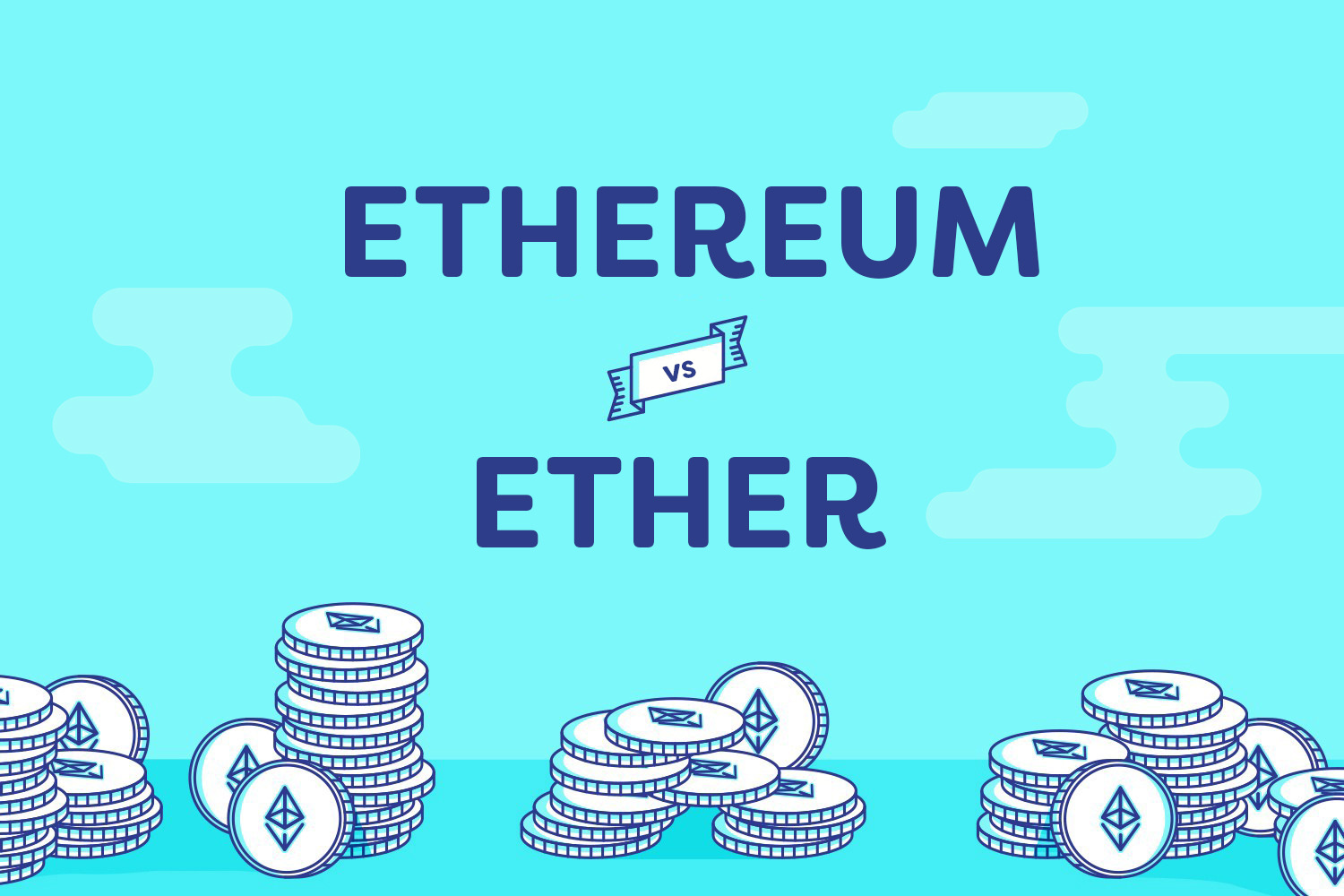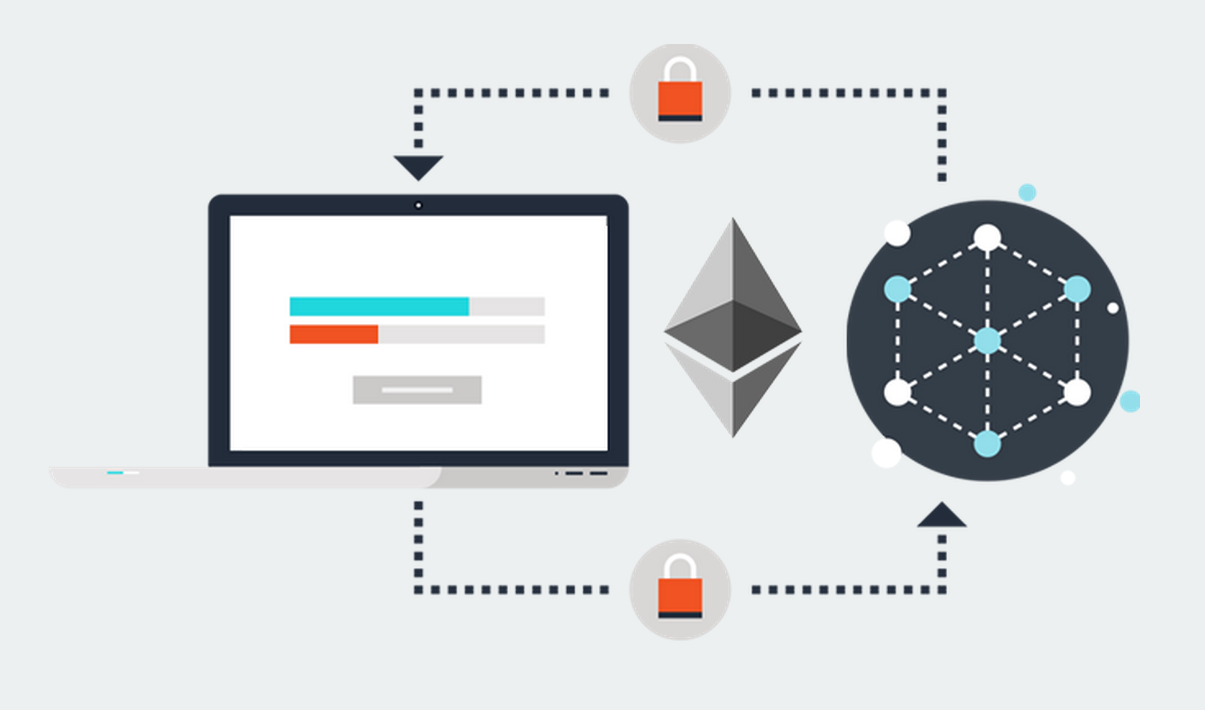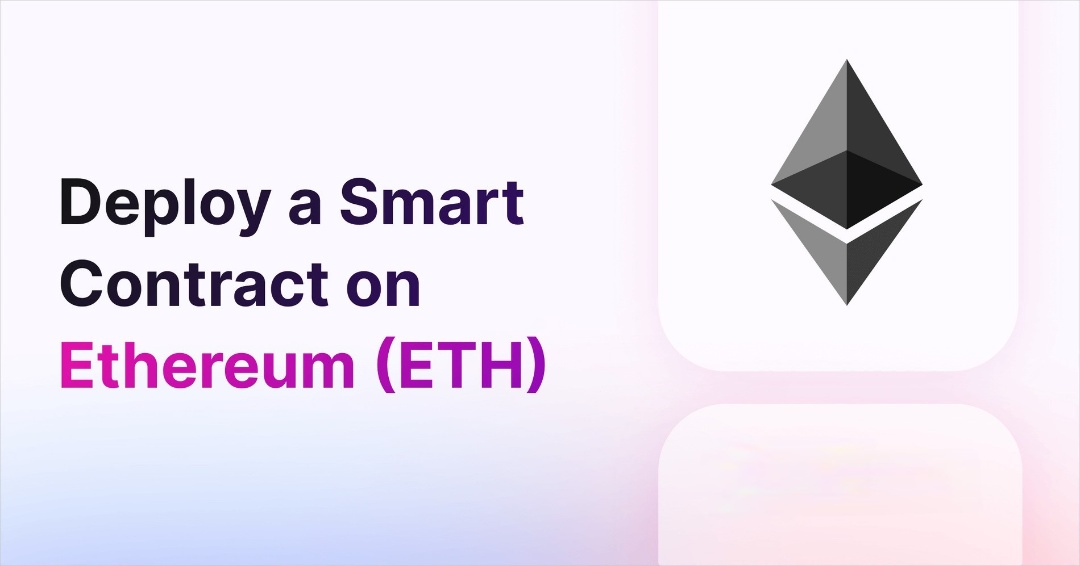Introduction
Welcome to the world of smart contracts and the incredible impact they have on the value of Ethereum! As the popularity of cryptocurrencies and blockchain technology continues to surge, the role of smart contracts in facilitating secure and efficient transactions has become increasingly prominent.
But what exactly are smart contracts and how do they contribute to the value and growth of Ethereum? In this article, we will explore the fundamental concept of smart contracts, their functionality, and the multitude of benefits they bring to various industries. We will also delve into the increasing use cases for smart contracts, their role in the decentralized economy, and their impact on Ethereum’s value.
Smart contracts are self-executing agreements written in code that automatically execute once certain predefined conditions are met. They are built on blockchain technology and enable parties to interact and engage in transactions without the need for intermediaries. By eliminating the need for a trusted third party, such as a bank or a lawyer, smart contracts offer a transparent, secure, and decentralized way to conduct business.
The underlying technology behind smart contracts is Ethereum, a decentralized blockchain platform that allows developers to build and deploy smart contracts. Ethereum’s unique offering lies in its ability to execute complex computations on the blockchain, making it versatile and adaptable for a wide range of applications. It serves as the foundation for numerous decentralized applications (dApps) and is widely recognized as the second-largest cryptocurrency platform after Bitcoin, in terms of market capitalization.
As the use cases for smart contracts continue to grow, Ethereum gains more traction and value. With its robustness and flexibility, Ethereum enables developers to create decentralized applications that provide innovative solutions across industries such as finance, supply chain management, insurance, and healthcare.
In the following sections of this article, we will dive deeper into the inner workings of smart contracts, explore their benefits, and examine their impact on the decentralized economy. We will also discuss how smart contracts enhance security and efficiency, their potential in the Internet of Things (IoT) landscape, and their growing presence in financial services and supply chain management sectors. By the end of this article, you will gain a comprehensive understanding of how smart contracts contribute to the value and growth of Ethereum.
What are Smart Contracts?
Smart contracts are self-executing agreements written in code that automatically execute once certain predefined conditions are met. They are built on blockchain technology and offer a transparent, secure, and decentralized way to conduct business.
Unlike traditional contracts that require intermediaries, such as lawyers or banks, to enforce the terms, smart contracts eliminate the need for third parties by leveraging the power of blockchain technology. These contracts operate on a decentralized network, ensuring that all parties involved have access to the same information and can trust the execution of the contract.
Smart contracts are written using programming languages, primarily Solidity for Ethereum. They are stored on the blockchain and are immutable, meaning they cannot be altered or tampered with once deployed. The code outlines the terms and conditions of the agreement, as well as the actions to be taken when predetermined conditions are met.
Once the conditions outlined in the smart contract are fulfilled, the contract automatically executes and enforces the agreed-upon terms. This eliminates the need for manual intervention or oversight, reducing the risk of human error and potential disputes.
Smart contracts can be used to automate a wide range of transactions and operations. For example, they can facilitate the exchange of digital assets, such as cryptocurrencies, or manage complex financial instruments, including loans or derivatives.
The transparency and security provided by smart contracts make them particularly useful in scenarios where trust is a critical factor. As all transactions and records are stored on the blockchain, they are easily auditable and traceable, ensuring transparency and accountability.
Furthermore, the decentralized nature of smart contracts makes them resistant to censorship or manipulation. Since they operate on a network of computers rather than a single central authority, the execution and enforcement of the contract are distributed across multiple nodes, making it difficult for any single entity to manipulate the process.
In summary, smart contracts are self-executing agreements written in code that eliminate the need for intermediaries. They leverage blockchain technology to ensure transparency, security, and decentralization. By automating transactions and enforcing predefined conditions, smart contracts provide a more efficient and trustless way to conduct business.
How Do Smart Contracts Work?
Smart contracts operate based on the principles of blockchain technology, utilizing decentralized networks to enforce and execute agreements. Understanding how they work requires a grasp of key concepts like decentralization, consensus mechanisms, and immutability.
When a smart contract is created, it is written in a programming language, typically Solidity for Ethereum. The contract’s logic and conditions are encoded into the code, including the terms of the agreement and the actions to be performed.
Once the contract is written, it is deployed onto the blockchain, where it becomes immutable. Immutability means the terms of the contract cannot be modified once deployed, ensuring the integrity and stability of the agreement.
Smart contracts rely on the decentralized nature of blockchain networks to enable trustless execution. The decentralized network consists of multiple computers, or nodes, that participate in the verification and validation of transactions. Each node has a copy of the entire blockchain, ensuring that no one has control over the network.
When a transaction involving a smart contract is initiated, the nodes on the network validate and verify the transaction. This process is often done through consensus mechanisms like Proof of Work (PoW) or Proof of Stake (PoS).
Once the transaction is verified and confirmed by the network, the smart contract’s predefined conditions are evaluated. If the conditions are met, the contract automatically executes and performs the specified actions. For instance, if the contract involves the transfer of digital assets, the smart contract will initiate the transfer upon verification.
The execution of smart contracts is deterministic, meaning it produces the same result given the same conditions and inputs. This predictability ensures that the outcome of the contract can be trusted by all parties involved.
Additionally, smart contracts can interact with other smart contracts and external data sources through predefined interfaces. This functionality allows for the development of complex decentralized applications (dApps) that can connect and interact with various components of the blockchain ecosystem.
It’s important to note that smart contracts are not infallible and require careful coding and security measures. Auditing the code, considering potential vulnerabilities, and continuously improving the contract’s security are crucial steps in ensuring the reliability of a smart contract.
In summary, smart contracts work by encoding the terms and conditions of an agreement into immutable code deployed onto a decentralized blockchain network. The execution of the contract is triggered by predefined conditions and occurs automatically without the need for intermediaries. By leveraging decentralized networks, smart contracts provide a trustless and efficient way to enforce agreements and execute transactions.
The Benefits of Smart Contracts
Smart contracts offer a range of advantages over traditional contract mechanisms, bringing transparency, security, and efficiency to various industries. Here are some key benefits of utilizing smart contracts:
These benefits contribute to the growing adoption of smart contracts across various industries. From finance and healthcare to supply chain management and real estate, the advantages offered by smart contracts are revolutionizing business processes and enhancing efficiency and trust.
Increasing Use Cases for Smart Contracts
The adoption of smart contracts is expanding rapidly across multiple industries, with new and innovative use cases emerging regularly. Here, we explore some of the most prominent fields where smart contracts are being utilized:
Finance: In the financial sector, smart contracts are revolutionizing traditional banking and financial services. They enable the automation of processes such as asset transfers, loan agreements, and insurance claims. Smart contracts can ensure that funds are released only when specific conditions are met, reducing the risk of fraud and enhancing the speed and efficiency of financial transactions.
Supply Chain Management: Smart contracts hold significant potential in streamlining supply chain processes. They can automate inventory management, track shipments, verify authenticity, and oversee payments. By automating these tasks, smart contracts help reduce errors, increase transparency, and optimize supply chain efficiency, benefiting industries such as manufacturing, logistics, and retail.
Real Estate: Smart contracts offer advantages in the real estate industry by simplifying the complex process of property transfers. They can facilitate transactions, handle escrow agreements, provide automatic property titles, and ensure secure and transparent property ownership records. Smart contracts also enable fractional ownership and enable the creation of decentralized platforms for property rental and investment.
Healthcare: In healthcare, smart contracts facilitate secure sharing of medical records, automate insurance claims and payments, and ensure adherence to treatment protocols. They enhance data interoperability and accuracy while improving patient privacy and driving operational efficiencies in healthcare systems.
Intellectual Property: Smart contracts can be used to establish ownership rights and manage licensing agreements for intellectual property. They enable artists, musicians, and creators to protect their work, automate royalties, and ensure fair compensation for their intellectual property usage.
Gaming and Entertainment: Smart contracts are being integrated into gaming platforms to provide transparent, secure, and provably fair gaming experiences. They enable the creation and management of non-fungible tokens (NFTs) and in-game assets, fostering a decentralized marketplace and creating new opportunities for gamers and content creators.
Energy and Utilities: Smart contracts are transforming the energy sector by facilitating peer-to-peer energy trading, automating billing and payments, and ensuring the secure transfer of renewable energy certificates. They enable individuals and businesses to directly engage in energy transactions, promoting a decentralized energy grid and reducing reliance on traditional energy providers.
Legal Contracts: Smart contracts offer advancements in the legal industry by providing self-executing and enforceable digital agreements. They streamline contract creation, eliminate the need for intermediaries, and reduce contract disputes through automated enforcement and predefined conditions.
These use cases are just a glimpse of the potential of smart contracts. As developers and businesses continue to explore the technology, we can expect to see even more innovative applications across diverse sectors, ushering in a new era of automation, transparency, and efficiency.
Smart Contracts and the Decentralized Economy
Smart contracts are an integral part of the decentralized economy, revolutionizing traditional economic systems by shifting power away from centralized authorities towards a trustless and transparent framework. As a key component of blockchain technology, smart contracts play a crucial role in enabling decentralized applications (dApps) and reshaping various sectors of the economy.
The decentralized economy operates on a peer-to-peer (P2P) network, eliminating the need for intermediaries such as banks, governments, or corporations. By allowing direct interactions and transactions between users, smart contracts provide a platform for decentralized governance and economic activities.
One of the fundamental principles of the decentralized economy is democratization. Smart contracts enable individuals to actively participate in economic activities, removing barriers to entry and promoting financial inclusivity. Through decentralized platforms, anyone with internet access can create, execute, and benefit from smart contracts, regardless of their geographic location or socioeconomic status.
Another key aspect of the decentralized economy is transparency. Smart contracts operate on public blockchains, where all transactions and contract terms are visible and auditable by anyone. This transparency strengthens trust between parties, as the entire network can verify the fairness and integrity of the transaction process.
Furthermore, smart contracts empower individuals to have full control over their own financial assets. Instead of relying on centralized institutions to hold and manage funds, smart contracts enable users to have complete ownership and custody of their assets. This removes the risk of funds being frozen, confiscated, or mismanaged by third parties.
The decentralized economy also introduces the concept of decentralized autonomous organizations (DAOs). DAOs are organizations whose decisions and operations are governed by smart contracts and community voting. They provide a democratic and transparent framework for decision-making, enabling stakeholders to actively participate and have a say in the organization’s direction.
Moreover, smart contracts enable the fractionalization of assets, allowing individuals to invest in and own fractions of valuable assets such as real estate, artwork, or intellectual property. This fractional ownership opens up new investment opportunities and democratizes access to traditionally exclusive markets.
By reducing the reliance on intermediaries, smart contracts contribute to cost reduction and increased efficiency. Traditional financial transactions often involve multiple parties and lengthy processes, leading to higher fees and longer settlement times. Smart contracts automate and streamline these processes, saving time, reducing costs, and increasing the speed of transactions.
The decentralized economy powered by smart contracts is not without challenges. Scalability, regulatory frameworks, and the need for efficient dispute resolution mechanisms are among the hurdles that need to be addressed. However, as technologies and solutions continue to evolve, the decentralized economy holds the promise of redefining the way we participate in economic activities and interact with one another.
The Role of Smart Contracts in Ethereum’s Value
Smart contracts play a pivotal role in the value proposition of Ethereum, the second-largest cryptocurrency platform by market capitalization. Ethereum’s blockchain platform was specifically built to support the development and execution of smart contracts, making it a crucial factor in Ethereum’s success and wider adoption.
Smart contracts have propelled Ethereum beyond being a mere digital currency, transforming it into a powerful platform for decentralized applications (dApps) and a hub for innovation and development in the blockchain ecosystem.
One of the primary reasons for Ethereum’s value is its ability to enable developers to build and deploy smart contracts. These contracts provide a secure, transparent, and automated way to execute agreements without requiring intermediaries. This functionality has revolutionized various industries, including finance, supply chain management, real estate, and more.
The demand for Ethereum has grown significantly due to the increasing adoption of dApps, which rely on smart contracts to function. The more robust the ecosystem of dApps and the more extensively smart contracts are utilized, the higher the demand for Ethereum, driving its value.
Ethereum’s value is also influenced by the scalability of its network and the ability to handle a high volume of smart contract transactions. As the network’s capacity improves and transaction processing becomes more efficient, Ethereum becomes more attractive both to developers and users, further increasing its value.
Furthermore, Ethereum’s value is closely tied to the innovation happening within the ecosystem. The platform allows developers to create tokens and launch Initial Coin Offerings (ICOs). These tokens and ICOs are typically built on top of Ethereum’s blockchain, utilizing its smart contract functionality. The success and adoption of these tokens and projects contribute to the overall value and desirability of Ethereum.
Another significant factor in Ethereum’s value is the network effect. Ethereum’s protocols and infrastructure have established a strong network of developers, users, and businesses who have vested interests in its success. This network effect creates a positive feedback loop, with more adoption leading to more development and innovation, driving Ethereum’s value even higher.
As more industries recognize the potential of smart contracts and the benefits offered by Ethereum’s platform, the demand and value of Ethereum are likely to continue to grow. However, it is important to note that Ethereum’s value is also influenced by other factors such as market sentiment, competition from other blockchain platforms, regulatory considerations, and overall blockchain market trends.
In summary, smart contracts are at the core of Ethereum’s value proposition. The ability to facilitate secure, transparent, and automated agreements has driven the adoption of Ethereum and sparked innovation within the ecosystem. The value of Ethereum is intertwined with the demand for smart contracts, the scalability of the network, the success of dApps, and the overall network effect. As Ethereum continues to evolve and address scalability challenges, its value as a leading blockchain platform is expected to strengthen.
Enhancing Security and Efficiency with Smart Contracts
Smart contracts bring significant enhancements to both security and efficiency in various industries, revolutionizing traditional processes and transactions. By leveraging blockchain technology and cryptographic techniques, smart contracts provide a robust and transparent framework that mitigates risks and streamlines operations.
One of the key advantages of smart contracts is their immutability. Once deployed on the blockchain, smart contracts cannot be modified or tampered with, ensuring the integrity of the agreement. This eliminates the risk of fraudulent alterations and provides a high level of security for all parties involved.
Additionally, smart contracts utilize encryption and cryptographic algorithms to secure the transfer of data and assets. Transactions conducted through smart contracts are protected by cryptographic keys, ensuring that only authorized parties can access and engage with the contract. This level of security reduces the potential for data breaches and unauthorized manipulation.
The automation enabled by smart contracts enhances efficiency and reduces human error. Manual processes, such as paper-based documentation, manual data entry, and manual verification, are prone to mistakes and delays. Smart contracts automate these processes by executing predefined tasks once specific conditions are met. This eliminates the need for intermediaries and manual intervention, reducing the time and effort required to complete transactions.
Furthermore, smart contracts enable faster settlement times compared to traditional systems. Traditional financial transactions often involve multiple intermediaries, resulting in extended settlement periods. Smart contracts automate the verification and execution process, speeding up the settlement and reducing the time it takes for parties to receive their assets or funds.
The transparency provided by smart contracts also contributes to their efficiency. All transactions and terms of the contract are recorded on the blockchain, allowing all participants to access and verify the details. This transparency eliminates the need for parties to rely on external sources for data or trust in the word of others. The ability to independently verify information improves efficiency and reduces the time spent on information and document sharing.
Smart contracts also offer better auditability and accountability. As every transaction executed through smart contracts is permanently recorded on the blockchain, it becomes easy to audit and trace the history of activities. This audit trail enhances accountability and ensures compliance with regulations and contractual obligations.
Moreover, the utilization of smart contracts reduces the reliance on intermediaries, such as banks or lawyers, which can lower transaction costs. Intermediaries often charge fees for their services, increasing the overall expenses involved in transactions. Smart contracts eliminate the need for these intermediaries, making transactions more cost-effective and accessible to a broader range of individuals and businesses.
Smart contracts, with their enhanced security and efficiency, have the potential to transform industries such as finance, supply chain management, healthcare, and more. As the technology continues to evolve and more use cases emerge, the advantages provided by smart contracts will play a crucial role in driving innovation, protecting assets, and streamlining operations.
Smart Contracts and the Internet of Things (IoT)
The combination of smart contracts and the Internet of Things (IoT) has the potential to revolutionize the way devices interact and transact with each other. IoT refers to the network of interconnected devices that communicate and exchange data without human intervention. By incorporating smart contracts into IoT ecosystems, a new level of automation, transparency, and efficiency can be achieved.
Smart contracts can facilitate secure and automated transactions between IoT devices. For example, in a smart home scenario, sensors, appliances, and other devices can be connected and governed by smart contracts. These contracts can automatically execute actions based on predefined conditions. For instance, a smart contract can monitor energy usage and automatically adjust the thermostat or turn off lights to optimize energy consumption.
By utilizing smart contracts, IoT devices can operate autonomously, removing the need for centralized control. This decentralized approach increases the efficiency of IoT systems, as decisions and actions can be made in real-time by the devices themselves, based on the rules defined in the smart contracts.
The integration of smart contracts into IoT devices enhances the security and trustworthiness of data exchanges. Smart contracts provide a secure and tamper-proof framework for authenticating and verifying transactions and data transferred between devices. This ensures that the information exchanged between IoT devices remains confidential, accurate, and traceable.
Smart contracts also enable the monetization of IoT data and services. With the use of microtransactions and programmable money, IoT devices can autonomously sell or purchase services, data, or resources from other devices. This opens up new avenues for revenue generation and cost savings within IoT ecosystems.
Furthermore, smart contracts can enable the establishment of trust among IoT devices that may not have any prior relationship. Through the predefined rules and conditions encoded in the smart contracts, devices can interact and transact with each other safely and transparently. This allows for the seamless exchange of resources and services without the need for intermediaries.
The integration of smart contracts and IoT can have significant implications in various industries. For instance, in supply chain management, IoT devices equipped with smart contracts can track and verify the movement of goods, ensuring transparency and authenticity throughout the supply chain. In healthcare, smart contracts can securely exchange patient data between medical devices, enabling seamless and accurate monitoring and diagnosis.
However, the combination of smart contracts and IoT also poses challenges, such as scalability, connectivity, and data privacy. Ensuring the seamless integration of smart contracts and IoT requires addressing these challenges and developing interoperable standards and protocols.
In summary, the integration of smart contracts and IoT creates a powerful synergy, offering enhanced automation, transparency, and security. The combination enables autonomous and secure transactions between IoT devices, opens up new avenues for monetization, and enhances trust among devices that may have no prior relationship. As the IoT ecosystem expands and evolves, smart contracts will play a crucial role in unlocking the full potential of this interconnected network.
The Potential of Smart Contracts in Financial Services
Smart contracts have the potential to revolutionize the financial services industry by providing secure, transparent, and efficient solutions for various financial transactions and processes. The unique features offered by smart contracts can transform traditional financial processes, reduce costs, enhance security, and increase accessibility. Here are some key areas where smart contracts can make a significant impact:
Payments and Remittances: Smart contracts can streamline payment processes by automating the execution of transactions based on predefined conditions. This can eliminate the need for third-party intermediaries, such as banks, reducing transaction costs and settlement times. Smart contracts can also facilitate cross-border remittances by automating exchange rate calculations and ensuring timely and transparent transfers.
Insurance: Smart contracts can revolutionize the insurance industry by automating claims processing and payouts. Insurance policies can be encoded into smart contracts, and claims can be verified and settled automatically based on predefined conditions. This reduces the potential for fraud and improves the efficiency of claims management while increasing transparency for policyholders.
Loan Agreements: Smart contracts can facilitate peer-to-peer lending by automating the creation and enforcement of loan agreements. Borrowers and lenders can define the terms and conditions of the loan within the smart contract, and the contract can automatically execute and enforce repayment obligations. This eliminates the need for intermediaries and reduces the associated costs, making lending more accessible and efficient.
Asset Management: Smart contracts can improve the efficiency and transparency of asset management processes. By encoding ownership and transfer rules into smart contracts, assets such as securities, real estate, or intellectual property can be easily managed and transferred. This makes asset ownership more accessible, secure, and efficient, simplifying complex processes such as stock trading or property transfers.
Regulatory Compliance: Smart contracts can enhance regulatory compliance by automating regulatory processes and ensuring adherence to legal requirements. Compliance rules can be encoded into smart contracts, enabling real-time monitoring and transparent reporting. This can significantly reduce the administrative burden and costs associated with compliance, while also minimizing the potential for errors or fraudulent activities.
Identity and KYC Verification: Smart contracts can improve the efficiency and security of identity verification processes and Know Your Customer (KYC) procedures. Personal information can be stored securely on a blockchain network, and access to this information can be controlled by smart contracts. This enables faster and more secure identity verification, reducing the risks of identity theft and fraud.
Derivatives and Financial Instruments: Smart contracts have the potential to simplify and automate complex financial instruments, such as derivatives. By encoding the terms and conditions of these instruments into smart contracts, settlements can be automated and executed with precision. This reduces the risks associated with manual processing and enhances the efficiency of derivative transactions.
These are just a few examples of the potential of smart contracts in financial services. As the technology continues to evolve and regulatory frameworks adapt to support its implementation, smart contracts have the potential to transform the financial industry by providing secure, transparent, and efficient solutions that benefit both businesses and consumers alike.
Smart Contracts and Supply Chain Management
Smart contracts have the potential to revolutionize supply chain management by introducing transparency, efficiency, and trust in complex global supply chains. With their ability to automate and streamline processes, smart contracts can address key challenges in supply chain management, such as traceability, data integrity, and coordination among multiple stakeholders.
Traceability and Transparency: Smart contracts enable end-to-end traceability of products by recording every transaction and movement on a blockchain. This transparency ensures that all participants can view and verify the authenticity, origin, and condition of products throughout the entire supply chain. Smart contracts can track and record each step, including manufacturing, packaging, transportation, and delivery, ensuring accountability and reducing the potential for counterfeiting or unauthorized tampering.
Inventory Management: Smart contracts can automate inventory management by monitoring stock levels, reordering supplies when thresholds are reached, and ensuring seamless coordination between suppliers, manufacturers, and distributors. By automating these processes, smart contracts reduce human error, improve efficiency, and optimize inventory levels, minimizing stockouts and overstocking.
Supplier and Vendor Management: Smart contracts can streamline supplier and vendor management by automating contract execution, payment processing, and performance evaluation. Smart contracts can automatically trigger payments to suppliers when predefined conditions are met, reducing manual processes and eliminating payment delays or disputes. Performance metrics can be integrated into smart contracts, ensuring that suppliers meet quality, delivery, and compliance requirements.
Logistics and Shipping: Smart contracts can enhance efficiency in logistics and shipping by automating the documentation, tracking, and verification of goods. Delivery schedules, customs clearance, and transportation records can be encoded into smart contracts, enabling real-time visibility and reducing paperwork. This automation streamlines the movement of goods and ensures accurate and timely deliveries.
Contract Compliance: Smart contracts can automatically enforce compliance with contractual terms, ensuring that all parties involved adhere to agreed-upon conditions. For example, a smart contract can automatically release payment for goods only after verifying that they meet the specified quality standards. This reduces the need for manual inspection and minimizes disputes related to non-compliance.
Risk Management: Smart contracts can enhance risk management in supply chains by automating the monitoring and mitigation of risks. For instance, weather conditions or geopolitical events can be integrated into smart contracts to trigger contingency plans or initiate alternative sourcing options. This proactive risk management helps minimize disruptions and ensures continuity in supply chain operations.
Sustainability and Ethical Standards: Smart contracts can support sustainability initiatives by enabling the verification of environmental and ethical standards in supply chains. By embedding criteria such as fair trade practices, responsible sourcing, or carbon footprint measurements into smart contracts, organizations can ensure compliance and transparent reporting. This promotes sustainable practices and meets consumer demand for responsible and ethical supply chains.
By incorporating smart contracts into supply chains, organizations can achieve greater efficiency, transparency, and accountability. The automation and security offered by smart contracts improve coordination, reduce friction in transactions, and enhance overall supply chain performance. As the technology continues to evolve, smart contracts have the potential to transform supply chains, bringing significant benefits to businesses and consumers alike.
Conclusion
Smart contracts have emerged as a powerful tool, transforming industries and reshaping the way we conduct business. By leveraging blockchain technology and automation, smart contracts offer transparency, security, and efficiency in various applications.
From facilitating secure financial transactions to enhancing supply chain management, smart contracts provide an innovative solution to long-standing challenges in different sectors. They eliminate the need for intermediaries, reduce costs, minimize the potential for errors, and increase trust among parties involved in transactions.
The potential of smart contracts is vast, and their integration into existing systems has already begun to pave the way for a decentralized and trustless economy. The adoption of smart contracts, along with the advancement of blockchain technology, will continue to drive innovation and open new possibilities for collaboration and efficiency across industries.
To fully capitalize on the benefits of smart contracts, organizations need to embrace the technology and overcome the technical, regulatory, and scalability challenges. Collaboration between different stakeholders, such as developers, businesses, and legal bodies, is essential to establish standards, best practices, and regulatory frameworks that support the widespread adoption of smart contracts.
As the potential of smart contracts continues to be explored and realized, it is crucial to emphasize the importance of security. Smart contract developers must prioritize thorough testing and auditing of their code to minimize vulnerabilities and ensure the integrity of smart contracts deployed on the blockchain.
The journey towards the full potential of smart contracts is not without its challenges. Scalability issues, regulatory considerations, and the need for robust governance frameworks must be addressed to enable seamless integration of smart contracts into various industries. However, the benefits – enhanced security, efficiency, transparency, and automation – make the pursuit of smart contract adoption worthwhile.
In conclusion, smart contracts are revolutionizing the way we transact, govern, and operate in various sectors. With their ability to automate and secure transactions, smart contracts offer endless possibilities for innovation and efficiency. As the technology continues to evolve and mature, its impact on industries and economies worldwide will undoubtedly become more pronounced, paving the way for a future built on trust, transparency, and decentralized collaboration.

























